Related Research Articles

A cantata is a vocal composition with an instrumental accompaniment, typically in several movements, often involving a choir.
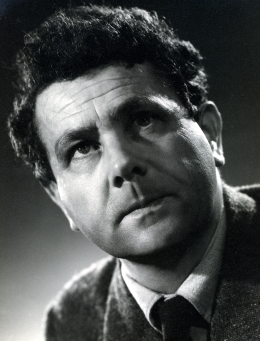
Gerald Raphael Finzi was a British composer. Finzi is best known as a choral composer, but also wrote in other genres. Large-scale compositions by Finzi include the cantata Dies natalis for solo voice and string orchestra, and his concertos for cello and clarinet.
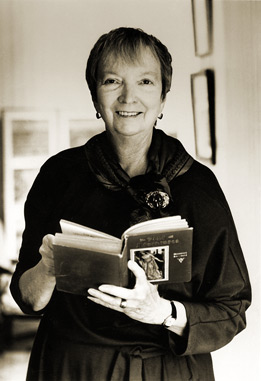
Madeleine L'Engle was an American writer of fiction, non-fiction, poetry, and young adult fiction, including A Wrinkle in Time and its sequels: A Wind in the Door, A Swiftly Tilting Planet, Many Waters, and An Acceptable Time. Her works reflect both her Christian faith and her strong interest in modern science.

A Wrinkle in Time is a young adult science fantasy novel written by American author Madeleine L'Engle. First published in 1962, the book won the Newbery Medal, the Sequoyah Book Award, the Lewis Carroll Shelf Award, and was runner-up for the Hans Christian Andersen Award. The main characters – Meg Murry, Charles Wallace Murry, and Calvin O'Keefe – embark on a journey through space and time, from galaxy to galaxy, as they endeavor to rescue the Murrys' father and fight back The Black Thing that has intruded into several worlds.
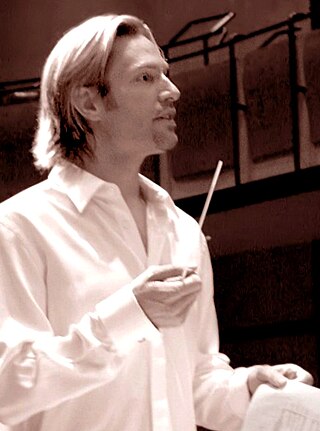
Eric Edward Whitacre is an American composer, conductor, and speaker best known for his choral music. In March 2016, he was appointed as Los Angeles Master Chorale's first artist-in-residence at the Walt Disney Concert Hall.
A Wind in the Door is a young adult science fantasy novel by Madeleine L'Engle. It is a companion book to A Wrinkle in Time and part of the Time Quintet.
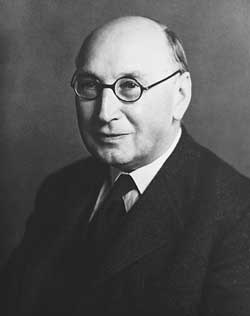
Sir William Henry Harris was an English organist, choral trainer and composer.

A Swiftly Tilting Planet is a science fiction novel by Madeleine L'Engle, the third book in the Time Quintet. It was first published in 1978 with cover art by Diane Dillon.

Harold Edwin Darke was an English composer and organist. He is particularly known for his choral compositions, which are an established part of the respertoire of Anglican church music. Darke had a fifty-year association with the church of St Michael, Cornhill, in the City of London.
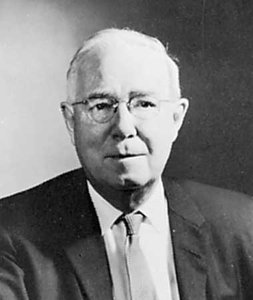
Leo Salkeld Sowerby was an American composer and church musician. He won the Pulitzer Prize for music in 1946 and was often called the “Dean of American church music” in the early to mid 20th century.

"In the Bleak Midwinter" is a poem by the English poet Christina Rossetti, commonly performed as a Christmas carol. The poem was published, under the title "A Christmas Carol", in the January 1872 issue of Scribner's Monthly, and was first collected in book form in Goblin Market, The Prince's Progress and Other Poems.
Heman the Ezrahite is the author of Psalm 88 in the Hebrew Bible, according to the Psalm's colophon.
Margaret D. Smith is an American writer, poet, musician, and artist. Her name is now Margaret Kellermann, active since 2011.
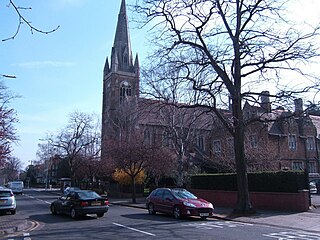
Rejoice in the Lamb is a cantata for four soloists, SATB choir and organ composed by Benjamin Britten in 1943 and uses text from the poem Jubilate Agno by Christopher Smart (1722–1771). The poem, written while Smart was in an asylum, depicts idiosyncratic praise and worship of God by different things including animals, letters of the alphabet and musical instruments. Britten was introduced to the poem by W. H. Auden whilst visiting the United States, selecting 48 lines of the poem to set to music with the assistance of Edward Sackville-West. The cantata was commissioned by the Reverend Walter Hussey for the celebration of the 50th anniversary of the consecration of St Matthew's Church, Northampton. Critics praised the work for its uniqueness and creative handling of the text. Rejoice in the Lamb has been arranged for chorus, solos and orchestral accompaniment, and for SSAA choir and organ.

Hodie is a cantata by Ralph Vaughan Williams. Composed between 1953 and 1954, it is the composer's last major choral-orchestral composition, and was premiered under his baton at Worcester Cathedral, as part of the Three Choirs Festival, on 8 September 1954. The piece is dedicated to Herbert Howells. The cantata, in 16 movements, is scored for chorus, boys' choir, organ and orchestra, and features tenor, baritone, and soprano soloists.
Madeleine L'Engle has published more than fifty books, including twenty-three novels, virtually all of them interconnected by recurring characters and locales. In particular, L'Engle's three major series have a consistent geography, including a number of significant fictional locations. These generally fall into two categories:
Raymond Henry Charles Warren is a British composer and university teacher.
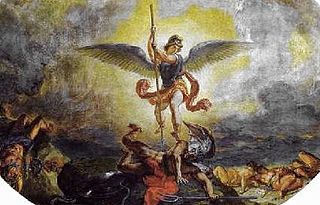
The Company of Heaven is a composition for soloists, speakers, choir, timpani, organ, and string orchestra by Benjamin Britten. The title refers to angels, the topic of the work, reflected in texts from the Bible and by poets. The music serves as incidental music for a mostly spoken radio feature which was first heard as a broadcast of the BBC in 1937.
Max Bruch composed a number of choral works that were, during his lifetime, judged to be his most successful pieces. Instrumental music makes up only about a third of Bruch’s total output, while vocal music forms a considerably larger proportion. These works are described variously as oratorios and cantatas. His oratorios are generally held to represent the best of his vocal writing. Some were of a religious character but many were based on mythological themes.
References
- 1 2 3 Shaw, Luci. Biography. Accessed October 16, 2007.
- 1 2 3 4 "Biographical Information". Luci Shaw. Retrieved 13 August 2019.
- 1 2 3 4 "Luci Shaw". Chrysostom Society. May 2011. Retrieved 13 August 2019.
- 1 2 3 Stetson, Nancy (19 November 1989). "Poet Luci Shaw Deal Honestly with Doubts and Struggles". Chicago Tribune. Retrieved 14 August 2019.
- ↑ "50 Women You Should Know". Christianity Today . Retrieved 16 November 2012.
- 1 2 Overstreet, Anne M. Doe. "A Conversation with Luci Shaw". Image Journal. Retrieved 13 August 2019.
- ↑ "Chrysostom Society" . Retrieved 13 August 2019.
- 1 2 Stiles, Peter (2010). "Luci Shaw (1928-)". The Encyclopedia of Christian Literature, Volume 1. Scarecrow Press. pp. 559–560. ISBN 9780810872837.
- ↑ "PW: RH Acquires Harold Shaw". PublishersWeekly.com. Retrieved 2019-10-14.